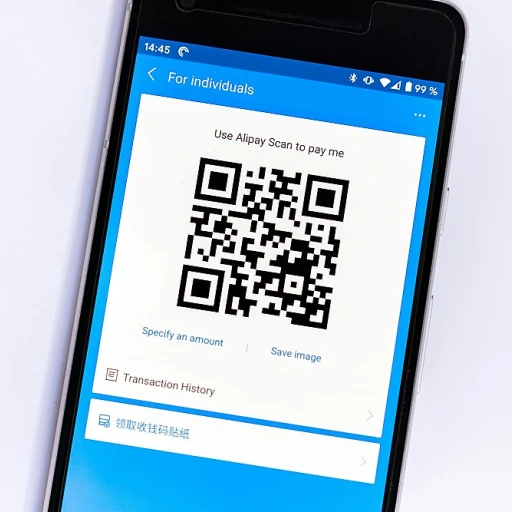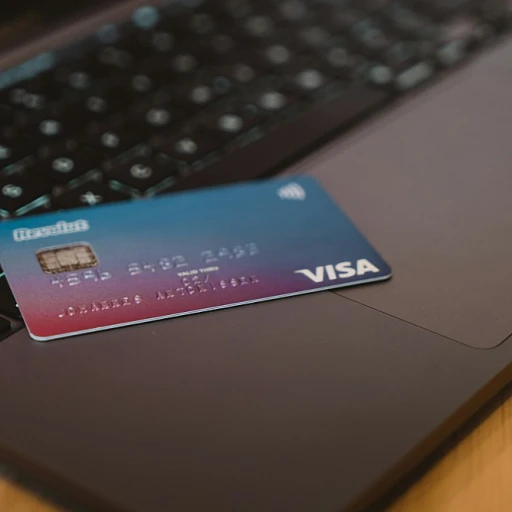
Understanding the forex market and its significance
What is the forex market?
The foreign exchange market, often referred to as forex or FX, is the biggest and most liquid financial market in the world. It is a global decentralized or over-the-counter (OTC) market for trading currencies. Each day, transactions worth over $6.6 trillion occur, pushing the forex market's daily volume past any other financial market. The forex market operates 24 hours a day, five days a week, across major financial centers in Tokyo, London, and New York, allowing for constant trading and making it highly accessible to traders around the globe.
Significance of the forex market
The forex market plays a crucial role in the global economy. It facilitates international trade and investments by enabling businesses and individuals to convert one currency into another. Additionally, it offers opportunities for speculation and hedging against currency risks. Investors and companies use forex trading to profit from fluctuations in exchange rates, while others use it to protect their investments and manage exposure to currency risks.
The forex market's structure and participants
The forex market comprises various participants, including commercial banks, central banks, financial institutions, hedge funds, corporations, and individual traders. The primary participants in the forex market are the major central banks, such as the U.S. Federal Reserve, the European Central Bank, and the Bank of Japan, who intervene in currency markets to ensure financial stability.
Key factors influencing the forex market
Several factors influence forex market dynamics, including economic indicators (GDP, unemployment rates, inflation), geopolitical events, interest rates, and market sentiment. For instance, central bank policies directly impact currency values. When the U.S. Federal Reserve adjusts its interest rates, it influences the value of the U.S. dollar relative to other currencies, directly affecting traders' decisions. Furthermore, major news events, like Brexit, can cause significant fluctuations in currency values, emphasizing the importance of being informed and adaptable in forex trading.
Key factors in choosing the best forex broker
Understanding your trading style
Choosing the best forex broker involves understanding your trading goals and style. Do you prefer a more hands-on approach or automated trading? For instance, FintechZoom mentions that traders who focus on short-term gains might require a broker offering tight spreads and rapid execution speeds. Meanwhile, long-term investors might prioritize platforms with robust research tools and financial planning resources like those provided by Saxo Bank or OANDA.
Must-have regulation and safety aspects
Safety is paramount when selecting a forex broker. Verify the broker's registration and regulation status. Leading regulatory bodies include the Financial Conduct Authority (FCA) in the UK, the U.S. Commodity Futures Trading Commission (CFTC), and the National Futures Association (NFA). A well-regulated broker ensures your funds are secure and adhere to stringent financial laws. According to a 2021 report by the FCA, brokers under tight regulatory scrutiny demonstrated more transparency and customer satisfaction than unregulated ones.
Transaction costs and commissions
Expense management is crucial in forex trading. Brokers can charge different fees like spreads, commissions, and overnight financing rates. For instance, high-frequency traders might benefit from brokers that offer tight spreads like XM or CMC Markets, while those less concerned with immediate costs might focus on the quality of customer support and platform usability. It's essential to compare the costs against the provided services to understand what's truly beneficial for your trading needs.
Evaluating platforms' features
The choice of trading platforms can significantly impact your trading experience. Leading platforms like MetaTrader 4 (MT4), MetaTrader 5 (MT5), and cTrader offer extensive charting tools, real-time data, and automated trading functionalities. According to a 2022 study by the Forex Review Council, traders favored platforms that were customizable and easy to navigate. For example, OANDA and Saxo Bank both offer proprietary platforms that are user-friendly and packed with essential features for both novice and experienced traders.
Localization and support
Consider brokers that offer localized services, including customer support in your native language and local payment options. FintechZoom highlights that brokers with 24/7 customer service tend to be preferred, especially across diverse time zones. For instance, brokers like Forex.com and IG Group stand out for their inclusive customer support and regional offices in key financial hubs such as London, Hong Kong, and Australia.
Review actual user experiences
User reviews and feedback are invaluable when assessing forex brokers. Platforms like Trustpilot and Forex Peace Army offer insights into real user experiences. According to 2023 data, brokers like IC Markets and Pepperstone consistently receive high marks for reliability and user satisfaction, making them notable contenders for traders across various skill levels.
FintechZoom's top picks for forex brokers
Fintechzoom's finest selections for forex brokers
When hunting down that perfect broker, fintechzoom has meticulously combed through the data to bring you the cream of the crop. Our selections aren't just about popularity but reliability, regulatory adherence, and traders' reviews. OANDA This veteran broker has earned its stripes over the years. Known for their transparency, they provide their clients with robust trading platforms and data-driven tools. What's interesting is that according to a 2020 study by the Aite Group, OANDA ranked highest in overall client satisfaction. XTB Based out of London and registered under the FCA, XTB is another standout. Their xStation 5 trading platform is an example of user-friendly interface design mixed with powerful capabilities. It offers functionalities like trader sentiment and stock screeners which many traders find invaluable. Prof. Aleksander Kłosowski from the University of Warsaw commented on XTB's technological edge, emphasizing its impact on growing their client base. Saxo Bank When we mention forex, Denmark's Saxo Bank should be on your radar. Their multifaceted trading platforms under the SaxoTraderGO umbrella cater to both rookie and veteran traders. A staggering $46 billion in daily trades reveals their dominance! Not just impressive numbers, their credibility also gets a nod from Forbes, labelling them as revolutionizing the forex market mechanics. CMC Markets To wrap up, CMC Markets hails from the floored trading rooms of London and stands out for its range of offerings including over 10,000 trading instruments. They're regulated by the FCA and have an enviable reputation built on customer support. According to a 2022 Greenwich Report, CMC Markets has ranked high in providing seamless trading experiences. These aren't just names. They keep evolving—adapting to change as the forex market morphs. Whether you're into stocks or commodities or just purely forex, fintechzoom's picks consider everything you need to sail smoothly in the trading seas.Comparing trading platforms and tools
Evaluating the interface and user experience
When it comes to choosing a trading platform, the interface and overall user experience are critical. A user-friendly design with intuitive navigation can significantly impact a trader's efficiency. Forex traders often look for platforms that offer customizability, ensuring they can adapt the views and tools to suit their strategies. Platforms such as MetaTrader 4 and 5, widely recognized in the industry, provide comprehensive charting tools, customizable indicators, and automated trading capabilities. According to a 2022 report by ForexBrokers.com, platforms like these are favored due to their advanced features and reliability.
Access to trading tools and resources
Another aspect pivotal in evaluating trading platforms is the availability of tools and educational resources. Traders need access to technical analysis tools, real-time data, economic calendars, and news feeds to stay updated on financial market movements. For instance, platforms like CMC Markets and Oanda offer extensive tools including advanced charting packages, financial news updates, and educational materials for traders at all levels. A study from Investment Trends in 2021 found that 63% of traders prioritize platforms that provide a rich set of analytical tools and educational content.
Mobile trading capabilities
In the fast-paced forex market, the ability to trade on-the-go can be a game-changer. Mobile trading apps need to offer the same functionalities as their desktop counterparts to be effective. Apps like Saxo Bank and IG Markets excel in this area, offering robust mobile platforms without compromising on tools or security. Close to 70% of forex traders use mobile devices for trading, noted in a survey by Finance Magnates in 2020, highlighting the significance of mobile trading capabilities in modern forex trading.
Security and compliance
The security of a trading platform is non-negotiable. Traders need assurance that their personal data and trades are protected. Regulations set by authorities like the FCA in the U.K. and the CFTC in the U.S. ensure platforms adhere to stringent security standards. For example, brokers like XM and Oanda are regulated by multiple authorities, demonstrating their commitment to maintaining high security standards. Furthermore, the adoption of two-factor authentication (2FA) and encryption technologies by trading platforms enhances their security liability.
To sum up, the combination of user-friendly interfaces, comprehensive trading tools, mobile trading capabilities, and stringent security measures make for a top-tier trading platform. In a highly competitive forex trading environment, these factors can differentiate the fintechzoom best forex broker from the rest.
The role of customer support in forex trading
The importance of responsive customer support
When it comes to forex trading, the value of efficient and responsive customer support cannot be overstated. Imagine being stuck in the middle of a critical trade, and the platform suddenly glitches! This is where top-notch customer service can make or break your trading experience. According to a 2022 study by Finance Magnates, 53% of traders rated customer support as one of the top three factors when selecting a forex broker.
Take Saxo Bank, for instance. Their customer support is lauded for being extremely proactive and helpful. This broker offers multiple channels including live chat, phone, and email support, catering to traders in real-time. Additionally, they provide comprehensive FAQs and educational resources to help address common queries.
Types of customer support offered by brokers
Forex brokers offer various forms of customer support, from 24/7 live support to limited weekday responses. For traders, the following support types are often essential:
- 24/7 Support: Brokers like Oanda and CMC Markets offer round-the-clock support, which is particularly useful for traders in various time zones.
- Multilingual Support: Given the global nature of forex trading, brokers such as XM and South Africa Investment Bank provide support in multiple languages.
- Dedicated Account Managers: Saxo Bank and FintechZoom assign dedicated account managers to high-volume traders, making sure their needs are handled efficiently.
In a tight race between platforms, such customer support can be the tipping point for many traders deciding on a preferred broker.
Case studies and examples
One example worth mentioning is a case study involving a trader from Japan using XM. The trader found themselves in a precarious situation during a major market movement, navigating fluctuating yen rates against the dollar. Thanks to XM’s quick-responsive support, the trader received instant advice and managed to avert significant losses. This highlights the pivotal role active customer support plays in real-time scenarios.
Another interesting story involves a trader in Australia who utilized the extensive educational tools provided by CFTC-regulated brokers like Saxo Bank. The resources, paired with excellent customer support, helped the trader become proficient rapidly, transforming their initial $1,000 investment into a $10,000 portfolio within a year.
The bottom line
Whether it’s a novice trader dabbling in the stock market or an experienced individual managing foreign exchange portfolios, having solid customer support is non-negotiable. It not only provides reassurance but often can be the differentiator in making profitable trades seamlessly, ensuring traders can focus on their investment objectives without unwarranted interruptions.
Trends and future outlook in the forex market
Seismic shifts in the forex market
Future trends in the forex market point to dynamic changes, driven by technology and evolving regulations. With an increased focus on AI and machine learning, brokers are leveraging real-time data analytics to anticipate market trends and automate trading strategies. According to a report by Global Market Insights, the forex market is expected to surpass $12 billion by 2026, fueled by technological innovations. Experts like Steven Hatzakis from ForexBrokers.com highlight the growing influence of AI in forex trading, which enhances decision-making processes for traders.The rise of decentralized finance (DeFi)
Decentralized finance is gaining ground within the forex market. Investors and traders are utilizing blockchain technology to access financial services without traditional banks. DeFi leverages smart contracts on blockchain platforms like Ethereum, paving the way for trustless and transparent trades. A study by Chainalysis in 2022 noted a 1,200% growth in DeFi usage over the past year.Regulation tightening globally
Countries are tightening regulations to ensure safer trading environments. The U.S. Commodity Futures Trading Commission (CFTC) and the Financial Conduct Authority (FCA) in the U.K. are introducing stricter guidelines for forex brokers. The NFA in the U.S. enforces stringent compliance measures to protect retail traders. For example, the CFTC's new leverage limits have significantly impacted trading strategies, nudging brokers toward greater transparency.The impact of geopolitical events
Geopolitical events continue to influence forex markets significantly. The Brexit vote and its effects on GBP, or the trade tensions between the U.S. and China impacting the USD/CNY pair, serve as prime examples. Traders are increasingly factoring in political developments and regulatory changes into their strategies. Forex brokers equipped with comprehensive analysis tools are in higher demand.Shifts in trading demographics
The demographic profile of traders is evolving, with a younger generation enthusiastic about the potentials of forex. A 2021 study by the Bank for International Settlements noted that millennials and Gen Z are entering the forex markets in large numbers, influenced by online trading platforms and social media. This demographic shift is prompting brokers to introduce more user-friendly platforms and educational resources.These trends are redefining the forex landscape, creating a more dynamic, technology-driven market. Brokers that adapt to these changes are better positioned to serve the needs of modern traders, ensuring their spot among the best forex brokers recognized by platforms like Fintechzoom.













